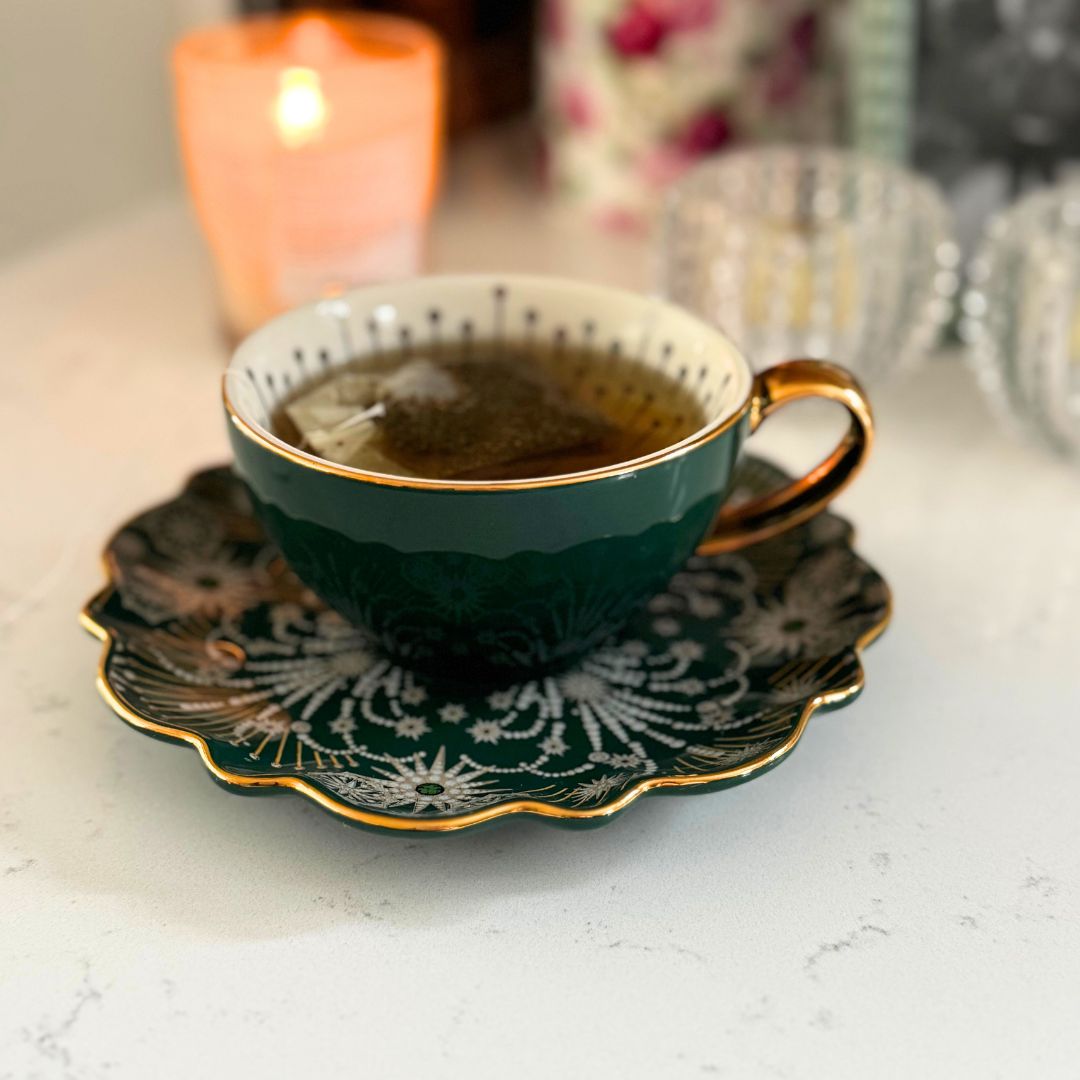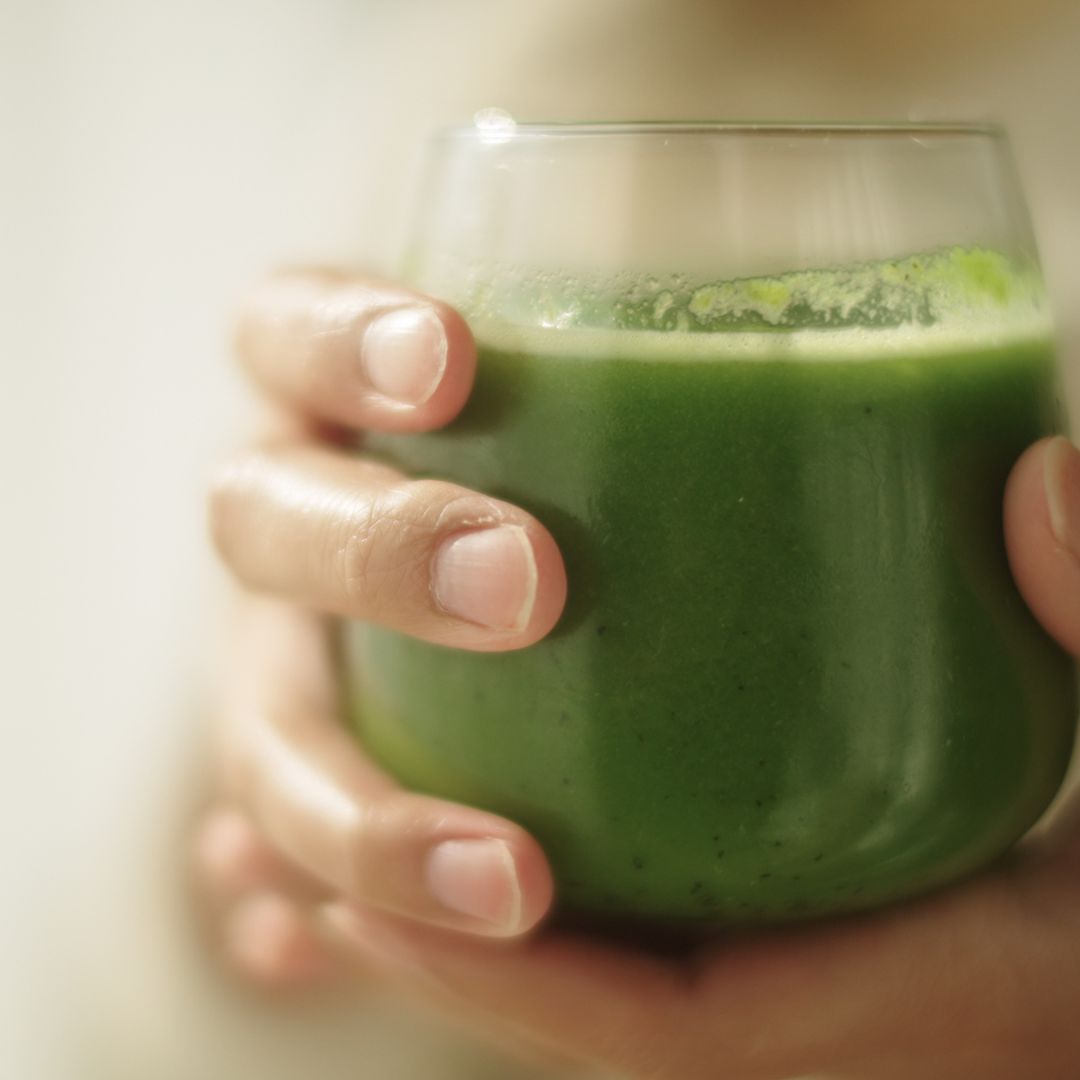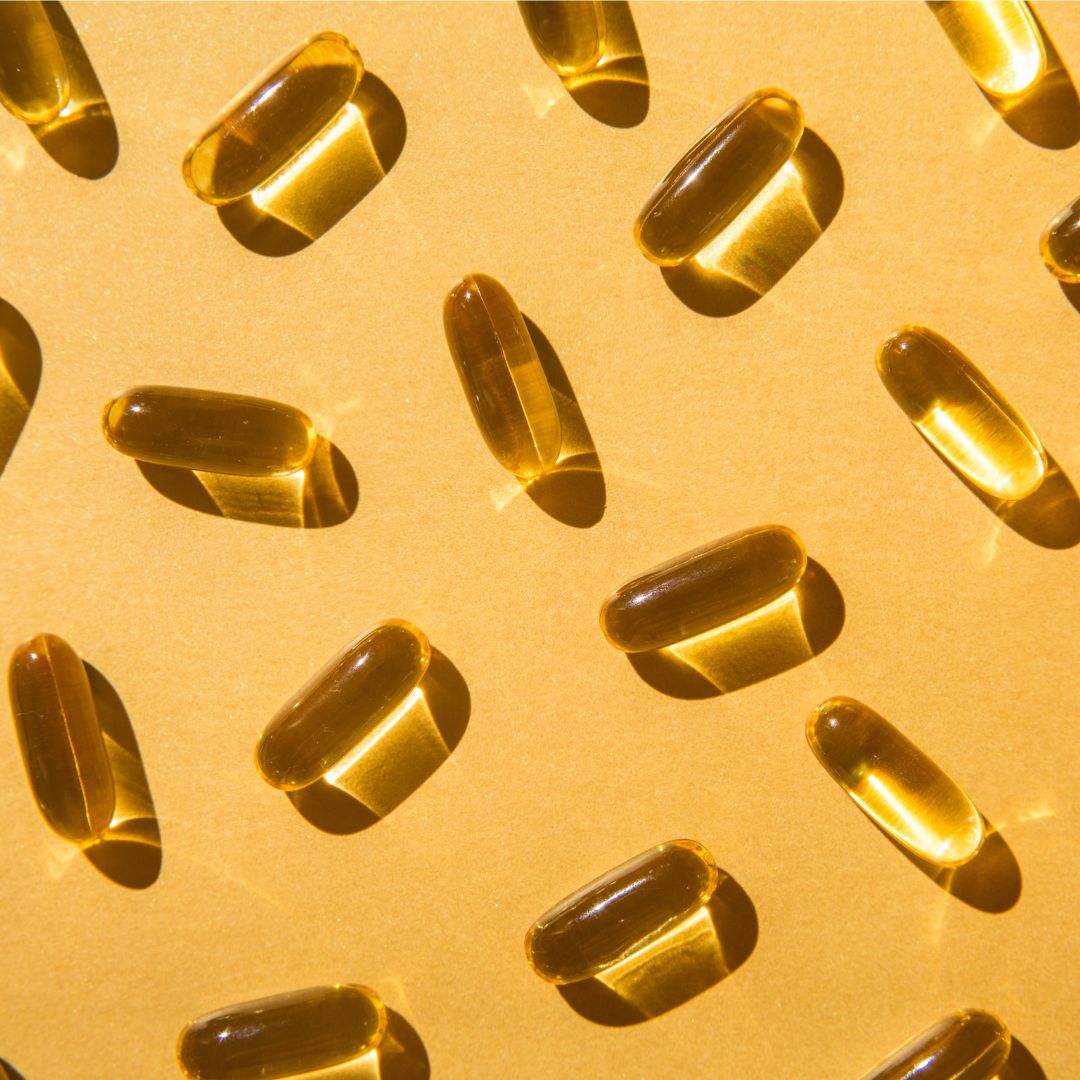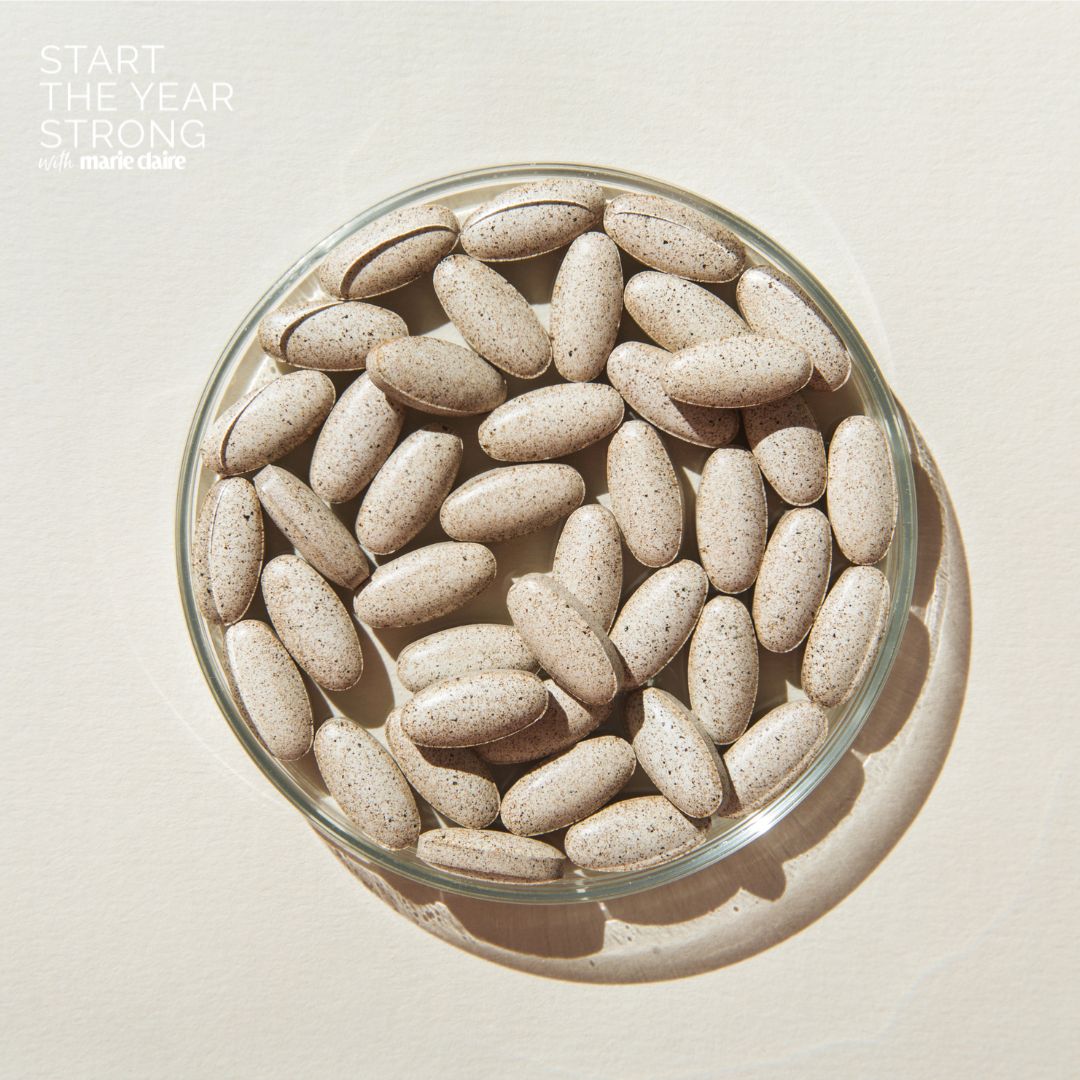Castor oil is the latest viral TikTok trend promising the world - but top experts have some serious doubts about its effectiveness
Is it really a cure-all elixir?


If you've been on TikTok recently, you've likely seen videos of people raving about the many castor oil benefits. A quick scroll of the app led me to find multiple videos claiming that by dropping the oil into your belly button, you can "detoxify your gut and liver, promote bathroom regularity, and reduce period pain and ovarian cysts."
We're sure you'll agree that these are seriously big claims, especially if they're not backed by scientific research or qualified experts. And while we're all for natural health alternatives - we cited biohacking, drinkable nutrition and postbiotics as some of the wellness trends to watch for the year ahead, and Senior Health Editor Ally Head has written a whole review of the calming shroom cacao she drinks before bed - we're also journalists keen to cut through the noise and debunk diet fads that are just that - fads.
It's important to remember that the fact that the vast majority of health advice on TikTok comes from individuals with no formal or relevant qualifications, so you can understand why these viral trends often do more harm than good, spreading misinformation and encouraging people at home to try potentially damaging hacks.
Enter stage right, the latest viral TikTok nutrition trend. Castor oil applied topically has been attracting the attention of holistic health lovers everywhere, but here at MC UK, we're a little sceptical about some of the claims being made on the app. So, we scoured the latest research and spoke to top experts to get to the bottom of the viral health hack once and for all. Is it really a supplement you should consider adding to your rotation, and can it really boost wellbeing as much as the viral videos claim? Keep scrolling for the experts take.
For expert-backed, scientifically approved nutrition tips, don't miss our guides to the benefits of mindful eating, our favourite Em The Nutritionist's recipes, plus MC UK's Senior Health Editor Ally Head's take on the viral inflammation diet, while you're at it.
Castor oil is trending as a way to supercharge your health - so, is it a fad?
What is castor oil?
In a nutshell, castor oil is vegetable oil pressed from beans of the castor bean plant that, once pressed, makes a pale yellow, almost colourless liquid. It's been around for a long time - cultivated for over 3,000 years - and is widely used in cosmetics, pharmaceuticals, and even the mechanical industry. You'll likely have used it in small amounts in natural soaps and perfumes, and further paints, waxes, and polishes.
As a natural health remedy, it's historically been used as a laxative and as a tool for midwives in the 19th century to ease pain.
Marie Claire Newsletter
Celebrity news, beauty, fashion advice, and fascinating features, delivered straight to your inbox!
@steph_claire_smith ♬ original sound - Steph Claire Smith
Why is putting castor oil in your belly button so popular on TikTok right now?
It’s hard to know but the interest has moved fast, as does any advice for a health pick-me-up. With that said, it's important to know when you have encountered a diet fad to avoid.
"This latest trend, often called navel pulling, has been making waves recently, with claims that applying castor oil to the belly button can aid digestion,” explains Holly Roper, a registered nutritionist and Health & Science Communications Manager at Holland & Barrett. “While this practice might appear to have surfaced out of nowhere, it actually has roots in Ayurvedic traditional medicine, which dates back over 3,000 years."
Still, Roper warns you to approach the trend with caution. "There is currently no scientific evidence to support the idea that putting castor oil in your navel has any benefits for digestion—or for any other health concerns. While traditional remedies may sometimes offer valuable insights, they should be viewed with caution and complemented by evidence-based medical advice." More on this later.
What is TikTok claiming that castor oil can do?
On the app, people are putting drops of castor oil in their belly buttons or in a body wrap to sit over their liver before leaving it on overnight. They then claim that this offers a whole host of benefits.
Some TikTok users claim to have used it for years to help with detoxing, fat loss and even the symptoms of women’s health conditions, like PCOS and endometriosis. Below are a few of the I read on TikTok castor oil videos:
- Has anti-inflammatory properties
- Has detoxifying properties
- Promotes fat loss
- Eases endometriosis symptoms
- Eases polycystic ovary syndrome (PCOS) symptoms
- Eases perimenopause symptoms
But let's be very clear here: there simply isn’t the relevant scientific backing at current to validate these claims, and certainly not enough to imply you shouldn't visit a qualified medical professional for help with any of the above.
Papers like this 2019 study from the Department of Experimental, Diagnostic and Specialty Medicine say that the castor bean plant may have originated from Africa and Asia, and further highlight its pharmacological usage in ancient Eygpt (before 1500 BC), mostly as a laxative and to treat baldness. Moving forward to 400 BCE, Greek philosopher and physician Hippocrates is said to have prescribed it again for its laxative effects and detoxing properties.
Some years later, a fellow Greek herbalist and physician, Pedanius Dioscorides, claimed that it had anti-inflammatory properties as well as the ability to cure burns, varicose veins, and so on. But Dr Shahzadi Harper, a qualified doctor who specialises in women’s health, warns that despite the history, you should be vigilant. “While castor oil has gained popularity, particularly for hair growth, it is essential to approach these claims with a critical eye. Anecdotal evidence might suggest some benefits, particularly in reducing inflammation, however, there is insufficient clinical support to back these assertions."
There are studies and reports on the Ricinus communis, aka the plant castor oil comes from, however. One 2014 paper about medicinal plants for women's healthcare in southeast Asia highlights that "the plant was also reported to be used to treat breast tumours, menstrual disorders and abnormal vaginal discharges." Castor oil, however, was mostly linked to the induction of labour and as Dr Harper highlights, has historically mostly been used as a laxative.
And even though castor oil may have been thought to induce labour in the past, the research is really mixed. One University of Texas Southwestern Medical Center study found that castor oil itself can cause uterine contractions and irritation which aren't actually labour contractions, but rather, digestive distress symptoms that women mistake for contractions (their study concluded that castor oil has no effect on inducing labour).
Especially regarding the more extreme claims, the results people may be experiencing are likely not due to the use of castor oil. One TikTok user claimed that they'd dissolved their kidney stone by using the oil, and as someone who's had kidney stones herself, Dr Harper "attests that no amount of castor oil would dissolve one." She reckons the individual may have been a coincidence from massaging or it passing naturally, which can happen with small kidney stones. "In reality, the primary action of castor oil is its laxative effect, which impacts the bowels rather than the genitourinary tract."
Bottom line? There is limited research on the health benefits of castor oil, and study results are inconsistent. Every expert we spoke to warned that you should approach with caution and consult a healthcare professional before taking castor oil for any purpose.
So, does castor oil in your belly button work?
While there's no doubt that castor oil certainly has a long history (one which the TikTok fans love to highlight), it's evident that there's a clear lack of factual findings on its effectiveness – especially in your belly button.
For period pains and those going through perimenopause specifically, massaging your stomach with castor oil might soothe and offer some relief adds Dr Harper, "but it is unlikely to address more severe conditions like endometriosis or PCOS".
There's also no scientific research to back up the claims that castor oil promotes fat loss, other than as a laxative which has the potential to make you seriously unwell. The term "detoxing" is also problematic and, again, isn't scientifically backed. “The only way that it could assist fat loss is as a result of its laxative effect - it'll likely clear out the bowels. But proceed with caution, as this can cause extreme diarrhoea, pain, and loss of electrolytes and nutrients,” says Dr Harper.
The trend seriously oversimplifies health, ignoring the importance of nourishing our bodies with vitamins and nutrients and instead focusing on quick fixes for fat loss. It goes without saying that this certainly isn't a trend that gets the MC UK seal of approval. It might be trending right now, but all of our experts advise approaching this one with vigilance. If you are suffering from any of the medical conditions above, do speak with your healthcare professional.
Shop MC UK approved health products now:

Health Editor Ally Head has this jacket in a few different colourways - it's seriously stylish while also being functional, and is the ideal layer for cold winter runs or hikes.

More of a Pilates girl? These stirrup leggings promise to stay in place for Reformer Pilates, mat Pilates and more, and thanks to Adanola's affordable but high quality design, they'll last the long run, too.

We're huge fans of Emily's recipes here at MC UK - they're easy to make, seriously tasty and also nutrient-dense, too.

Cam is a freelance writer who loves interior design, travel and anything that gets her outdoors enjoying the elements. Fitness has always been a part of her life, she’s been running and doing yoga for years, with reformer Pilates creeping into the mix over the past 12 months. When Cam is not writing, you’ll usually find her cycling to a good coffee shop in London, swimming or trying to surf - her latest love.
-
 I get lash lifts regularly—here’s how I combat 'lash dehydration’, as per expert advice
I get lash lifts regularly—here’s how I combat 'lash dehydration’, as per expert adviceHow I've got my flutter back on track...
By Rebecca Fearn
-
 I tried Charlotte Tilbury’s bridal make-up service for my wedding, and *loved* it—here’s everything you need to know
I tried Charlotte Tilbury’s bridal make-up service for my wedding, and *loved* it—here’s everything you need to knowOne of my favourite beauty experiences to date
By Tori Crowther
-
 Prince Harry's "proud" words about wife Meghan Markle are going viral
Prince Harry's "proud" words about wife Meghan Markle are going viralBy Jenny Proudfoot
-
 I tried TikTok's lemon balm tea for a week to see if it can really help to reset your nervous system - my honest review
I tried TikTok's lemon balm tea for a week to see if it can really help to reset your nervous system - my honest reviewSit back and pour yourself a cup of calm.
By Anna Bartter
-
 10 common nutrition myths a registered dietician swears they'd never follow - and wants you to avoid, too
10 common nutrition myths a registered dietician swears they'd never follow - and wants you to avoid, tooYou might find these surprising...
By Katie Sims
-
 Been consistent with your probiotic supplements but not feeling any different? 5 simple reasons why
Been consistent with your probiotic supplements but not feeling any different? 5 simple reasons whyDaily supps not boosting your wellbeing?
By Ally Head
-
 As the US bans controversial additive Red Dye 3 - a dietician explains what it is and why it's so harmful
As the US bans controversial additive Red Dye 3 - a dietician explains what it is and why it's so harmfulCherry red food colouring is on the out.
By Anna Bartter
-
 Wondering whether you should take probiotics? As a world-leading gut health scientist, you might be surprised by my take
Wondering whether you should take probiotics? As a world-leading gut health scientist, you might be surprised by my takeIn an MC UK exclusive, we deep dive into the latest research.
By Dr Megan Rossi
-
 As more brands launch their own alternatives, we ask top dieticians - do anti-glucose spike supplements actually work?
As more brands launch their own alternatives, we ask top dieticians - do anti-glucose spike supplements actually work?Seriously effective or serious fad?
By Anna Bartter
-
 Wellness Wins: I use my BetterMe ankle weights nearly every day - and can't believe how much they've levelled up my home workouts
Wellness Wins: I use my BetterMe ankle weights nearly every day - and can't believe how much they've levelled up my home workoutsA simple, affordable and effective home workout tool that you'll really use? I'm sold.
By Ally Head
-
 We asked anti-ageing experts for their honest take on the wildly popular NMN supplement - and they wouldn't recommend
We asked anti-ageing experts for their honest take on the wildly popular NMN supplement - and they wouldn't recommendCan a supplement ever really be the fountain of youth?
By Frances Daniels